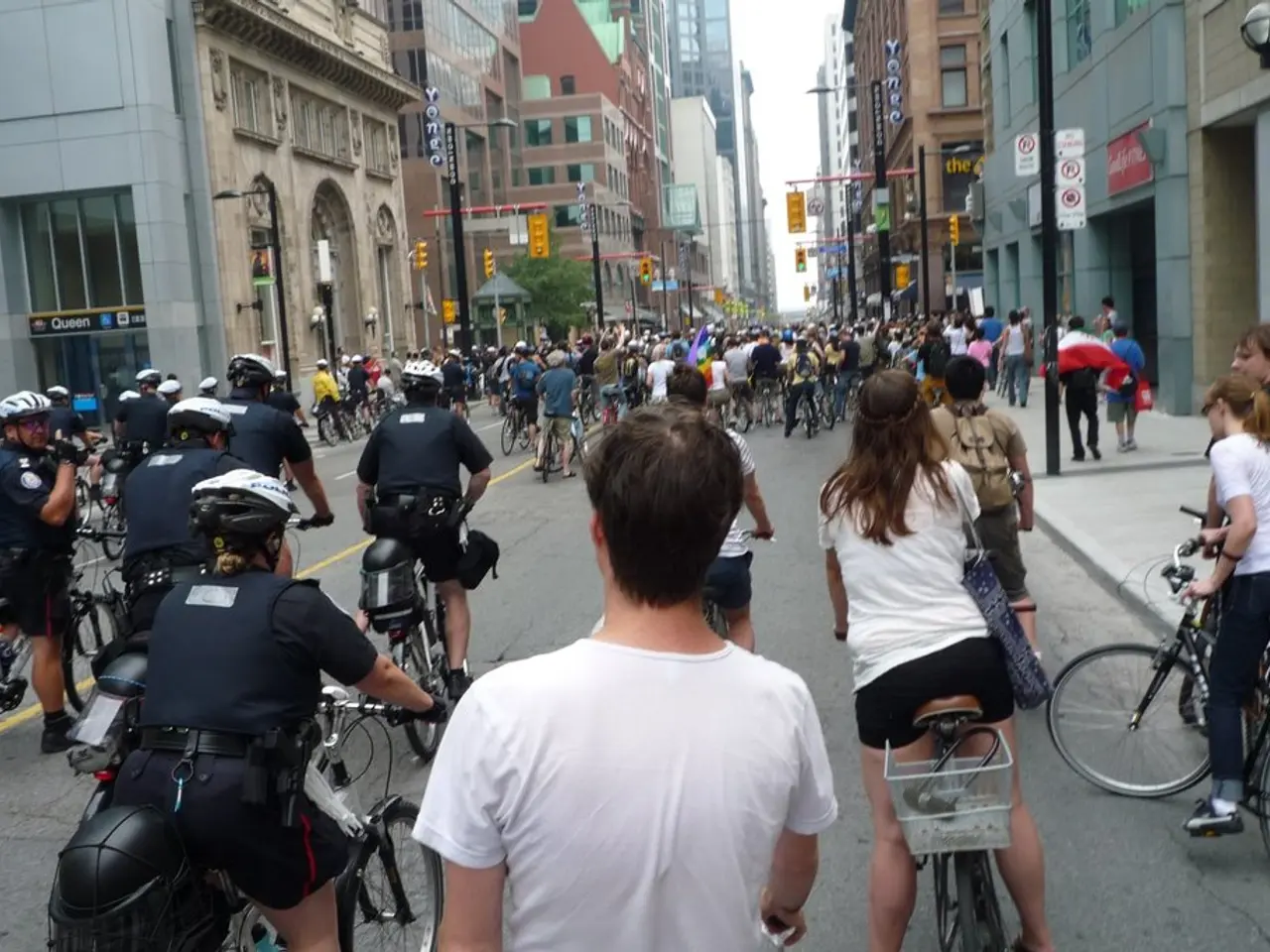Constructing bike paths in Neu-Isenburg fosters lasting opportunities for commuting and recreation.
Neu-Isenburg Embraces Bike Lanes for Safer, Greener Transport
In the heart of Germany, the city of Neu-Isenburg is making significant strides towards promoting a more environmentally friendly and safe transportation system. On February 5, the city council will decide on the continuation of the bike lane measure, a decision that seems to have widespread support among its residents.
The bike lanes, when well-designed and effectively implemented, generally improve traffic safety by reducing conflicts between cyclists and motor vehicles. In Neu-Isenburg, the results of a citizen survey indicate a noticeable decrease in the proportion of cyclists using sidewalks, suggesting a positive impact on safety. Moreover, the survey revealed that 17% of respondents cycle more frequently due to the bike lanes, a clear indication of increased adoption of cycling as a mode of transport.
Structural improvements are also being made at crossing points for pedestrians, and measures are being taken to address cyclists using sidewalks in Ludwig Street. Car traffic is minimally affected, with an average daily traffic volume of about 420 vehicles. Radar devices will be installed to display speed for car traffic, aiming to further enhance road safety.
Mayor Dirk Gene Hagelstein views the evaluation as confirmation of the city's sustainable traffic policy. Yvonne Lammersdorf, the mobility officer of the city of Neu-Isenburg, stated that the evaluation shows the importance of bike lanes in an environmentally friendly and sustainable traffic policy. The results suggest the city is on the right track towards more sustainable, safer, and environmentally friendly mobility.
Additional measures are being planned based on recommendations from Darmstadt University of Applied Sciences. Adaptations will be made at the Luisen Street/Garden Street intersection for better traffic flow, and improvements will be made at other key points in the city's cycling infrastructure.
The bike lanes on Luisen and Ludwig Streets in Neu-Isenburg have led to a 39% increase in cycling at three measurement sites. Many respondents saw the bike lanes as an important contribution to increasing traffic safety. Overall, the evaluation of the bike lanes indicates they are a crucial component of an environmentally friendly and sustainable traffic policy.
As the city continues to invest in its bike lanes, it is clear that Neu-Isenburg is committed to promoting cycling as a viable and attractive alternative to car travel. With the city council's decision on February 5, we can expect to see further developments in Neu-Isenburg's bike lane network and its ongoing commitment to sustainable urban mobility.
- What about integrating bike lanes into home-and-garden areas for promoting sustainable-living and traffic safety within Neu-Isenburg?
- In continueing their eco-friendly initiatives, could we also explore incorporating sustainable-living practices into the home-and-garden sector of Neu-Isenburg, thereby extending the benefits of their green transportation policy?




